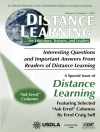This is the definitive guide to doing constructivist grounded theory.
From gathering rich data and conducting interviews, to undertaking coding and writing up your study, this down-to-earth book guides you through all the steps you need to do grounded theory research.
This revised third edition:
- Showcases 9 new case studies of grounded theory research in action from scholars across the globe, including Australia, Canada, Japan and the United States.
- Enables you to see, at a glance, how each chapter will develop your understanding with new learning objectives.
- Supports you to expand your knowledge with new further reading suggestions in every chapter.
Retaining Kathy Charmaz’s characteristic warm and accessible style, this book is essential reading for anyone – undergraduate, postgraduate or researcher – looking to understand and do grounded theory research.
Tabla de materias
Chapter 1: An Invitation to Grounded Theory
Chapter 2: Gathering Rich Data
Chapter 3: Crafting and Conducting Intensive Interviews
Chapter 4: Interviewing in Grounded Theory Studies
Chapter 5: The Logic of Grounded Theory Coding Practices and Initial Coding
Chapter 6: Focused Coding and Beyond
Chapter 7: Memo-writing
Chapter 8: Theoretical Sampling, Saturation, and Sorting
Chapter 9: Reconstructing Theorizing in Grounded Theory Studies
Chapter 10: Symbolic Interactionism and Grounded Theory
Chapter 11: Writing the Draft
Chapter 12: Reflecting on the Research Process
Sobre el autor
Kathy Charmaz was Professor Emerita of Sociology and the former director of the Faculty Writing Program at Sonoma State University. She joined the first cohort of doctoral students at the University of California, San Francisco, where she studied with Anselm Strauss. She wrote in the areas of social psychology, medical sociology, qualitative methods, and grounded theory, and over her career wrote, coauthored, or coedited 14 books, including two award-winning works: Good Days, Bad Days; The Self in Illness and Time, and Constructing Grounded Theory. She received the George Herbert Mead award for lifetime achievement from the Society for the Study of Symbolic Interaction, the Leo G. Reeder award for distinguished contributions from the Medical Sociology Section of the American Sociological Association and the Lifetime Achievement award from the International Congress of Qualitative Inquiry. Professor Charmaz also gave workshops on qualitative methods, grounded theory, symbolic interactionism, and scholarly writing around the globe.












